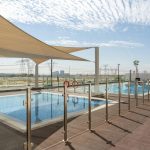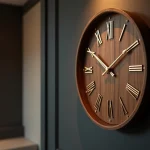Fire grilles are among the most commonly used elements in passive fire protection. To be reliable, they must meet specific standards and have recognised certifications. Understanding these standards is essential for project owners, architects and building managers.
Standard EN 1366-2
This European standard assesses the fire resistance of ventilation grilles. It tests their ability to block the spread of flames and smoke for a specified period of time. Compliant products are classified according to their performance, enabling professionals to choose devices suited to the building’s requirements.
Have you seen this : Achieving uk citizenship: the ultimate 2023 guide to your naturalization success
EN 13501-2 standard
This standard defines the fire performance classification of construction products. For example, it indicates how long a grille can withstand flames. A grille certified according to EN 13501-2 is a guarantee of quality and reliability, as it has undergone rigorous testing.
Local certifications
In addition to European standards, some countries require specific national labels or technical approvals. These local certifications complement the general standards and allow safety to be adapted to the regulations specific to each market. Many building managers also rely on specialised fire protection companies to ensure that the equipment they install is fully compliant with both European and national rules. Failure to comply with them may result in legal non-compliance.
Also to read : Achieving uk citizenship: the ultimate 2023 guide to your naturalization success
How to read a certification
Each certified fire grille has markings indicating its performance. These include the fire resistance duration, the test conditions and the body that validated the certification. Knowing how to interpret this information is essential to avoid making the wrong choice.
The benefits of a certified product
Choosing a certified fire grille guarantees optimal safety. In the event of an inspection or incident, having an approved product allows you to prove the compliance and quality of the installed device. It also avoids disputes with insurers.
The importance of independent testing
Certifications must always come from independent, accredited laboratories. This independence ensures the impartiality of the results and avoids the risk of falsification. It is an additional guarantee of reliability for users.
Certifications and insurance
Insurers generally require fire safety devices to comply with current standards. Installing non-certified products can cause problems in the event of a fire and limit compensation. Approved equipment therefore also protects the owner legally.
Avoid counterfeits
There are products on the market that imitate official markings without actually being certified. These poor-quality grilles endanger the safety of occupants. To avoid this risk, it is essential to purchase from recognised and specialised distributors.
Choosing fire grilles certified according to European and local standards is not an option, but a necessity. They guarantee long-term safety, ensure regulatory compliance and protect owners in the event of an inspection or incident. Partnering with professional fire protection companies and accredited distributors provides additional security, since these experts not only supply certified devices but also advise on installation and maintenance. By relying on specialised fire protection companies, project owners, architects and building managers can be certain that every grille complies with current standards while offering maximum efficiency. It is an investment that ensures compliance, safety and peace of mind for years to come.




